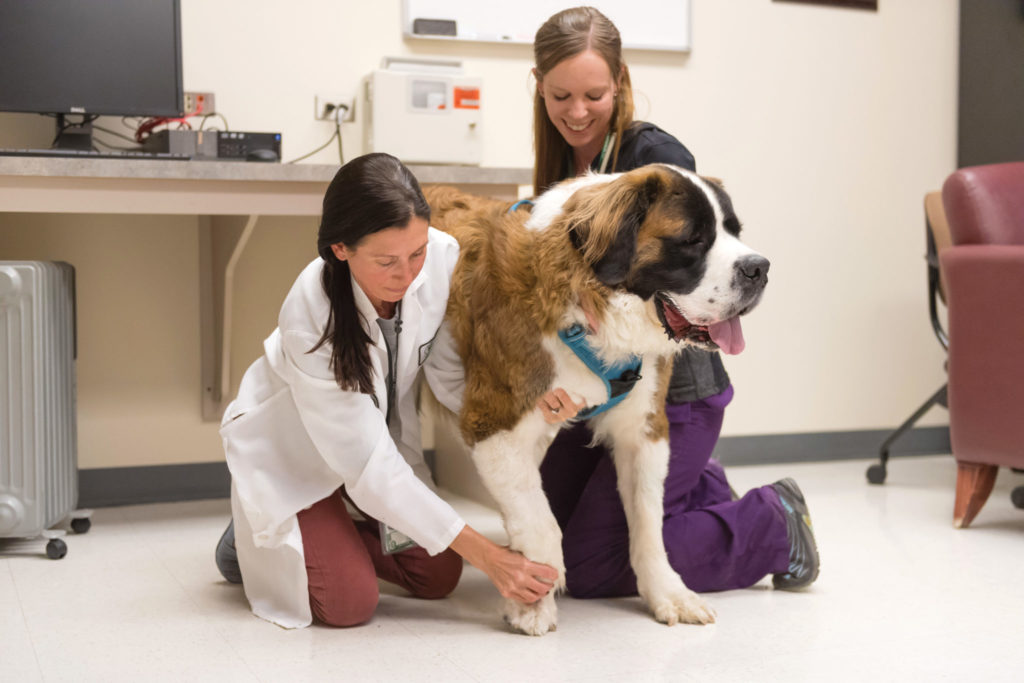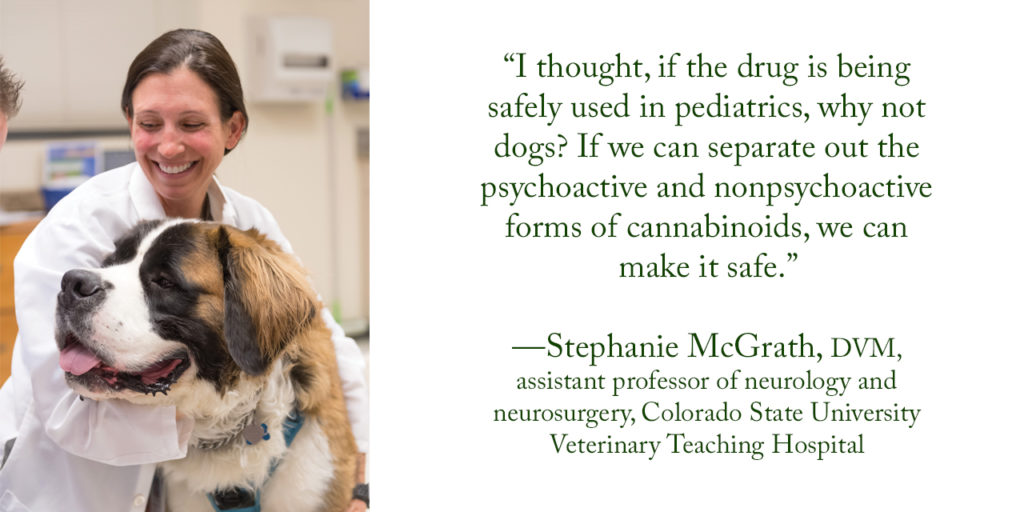By Samantha Prust
CSU researchers are studying the use of CBD for the treatment of epilepsy and arthritis in dogs. Warning: Don’t try this at home.
When cannabis became legal in Colorado in 2012, the calls started pouring in, recalls Stephanie McGrath, DVM, an assistant professor of neurology and neurosurgery at Colorado State University Veterinary Teaching Hospital. The callers were pet owners, asking about treating their pets with cannabis. “They wanted to know if there was a dose or kind we could recommend, but we hadn’t studied it,” says McGrath.

Atticus, a 3-year old St. Bernard, is enrolled in a CBD oil clinical trial at the James L. Voss Veterinary Teaching Hospital. Atticus is in for a recheck by Dr. Stephanie McGrath, Assistant Professor of Clinical Sciences, and Breona Thomas, Clinical Trials Coordinator. April 11, 2018
At that time, the thought of anyone giving their dog cannabis terrified McGrath because the component in cannabis that makes people “high,” tetrahydrocannabinol, commonly known as THC, is highly toxic to dogs. Then she saw Alan Shackelford, MD, being interviewed on television by medical reporter Sanjay Gupta. Shackelford was one of the first doctors to use “Charlotte’s Web,” a specially formulated cannabidiol (CBD) oil, to successfully treat a girl with Dravet syndrome, a debilitating form of epilepsy that caused her to have hundreds of seizures a day. McGrath says that piqued her interest. “I thought, if the drug is being safely used in pediatrics, why not dogs? If we can separate out the psychoactive and nonpsychoactive forms of cannabinoids, we can make it safe.”

So, in the interest of science and the well-being of our four-legged friends, in February 2016, McGrath spearheaded two groundbreaking studies. Her team, including Felix Duerr and Lisa Bartner, wanted to study whether CBD, a non-THC product, might provide relief or remedy to animals—specifically, dogs with epilepsy or arthritis. They found CBD oil to be the best way to administer the drug to the study participants. The studies focused on canines because epilepsy and arthritis are more common in dogs than in cats.
Once McGrath had the legal go-ahead from CSU in 2016, she did a pharmacokinetic study, and then proceeded with the clinical trials. “I was very fortunate that CSU was supportive of the research and that we received private funding from David Moche and Dr. Alan Shackelford,” she says. Moche and Shackelford founded Applied Basic Science Corp., the company that developed the CBD oil formula, C.H.O. Pet Tincture, used in the studies. The CSU team then began conducting the 12-week, double-blinded, placebo-controlled randomized trials. They enrolled 19 in the epilepsy study and 24 in the arthritis study.
The clinical trials for the first two studies ended in March, at which point the researchers unblinded themselves and began analyzing results. “I would hope by the end of the year, we’ll be able to either submit for publication or be published,” says McGrath.
Samantha Prust is a Fort Collins-based freelance writer. To comment on this article, send an email to
letters@nocostyle.com.






